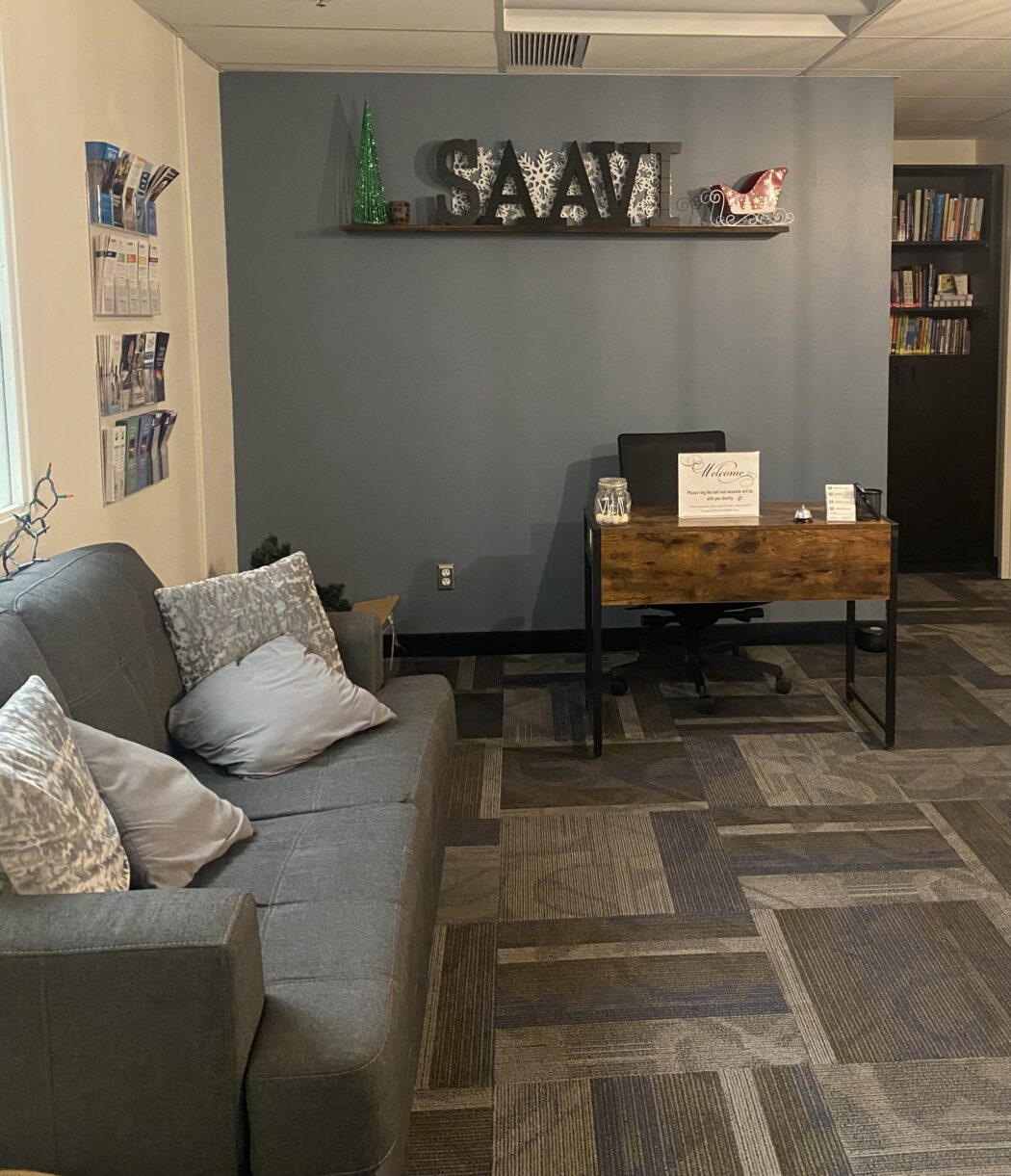SAAVI opens new writing studio
SAAVI staff is a part of the “Aggies think, care, act.” They are a confidential resource for students, faculty and staff alike that provide information and advocacy.
Claire Borgensen, a sophomore at Utah State University, is majoring in political science.
“SAAVI is like one of those secret resources that when discovered it almost seems unfathomable that other people don’t know about it,” Borgensen said.
Ingrid MacMurray is a student advocate who works at SAAVI.
“I wish more people knew that we were here, and that we are a confidential resource,” MacMurray said. “We are simply just here to advocate when someone wants. Reaching out to SAAVI for a resource is incredibly low risk, and we always make sure to do what that person wants us to do.”
SAAVI’s goal is to provide an environment filled with safety, understanding and advocacy. This environment isn’t just inside their office on the third floor of the TSC. It is also enacted through the outreach SAAVI does for USU.
Most recently, SAAVI has started a writing studio.
Shaun Anderson was recently hired onto SAAVI staff and has a lot of passion he hopes to use to make an impact.
“During the pandemic, I was in an MFA program for creative writing, where I had the opportunity to teach freshman composition,” Anderson said. “While I love writing and teaching, this experience revealed a lot of weaknesses in our societal systems. I ended up leaving my MFA program to pursue working a career in social work. As a survivor of sexual assault myself, and as a graduate student of USU, working as a victim advocate at SAAVI is a dream job for me.”
With Anderson’s background in writing and passion for healing, he has decided to start a writing studio through SAAVI.
“Writing is a powerful tool for helping people organize their thoughts,” Anderson said. “It can reveal our priorities, our hopes, our fears and our paths forward. When we write, we create something beautiful outside of ourselves that can hold our thoughts and our experiences. Especially for those of us working to heal from trauma, writing allows us to give that trauma, space to exist outside of ourselves.”
Anderson said writing is a great tool for people to process and reflect. SAAVI’s new writing studio is open for anyone.
“I don’t think anyone has to be a writer to benefit from or enjoy the writing studio,” Anderson said. “The writing studios are low commitment and welcoming to anyone who is looking for a safe place to express themselves.”
The writing studio can be beneficial for anyone, regardless of life or writing experience. It is also open for anyone in the USU community.
“It is really nice to have a space to reflect,” MacMurray said. “The writing studio helps me to process things going on in my life, and I think it can benefit others. The prompts that Shaun does are normally really vague, which means that you don’t have to write about trauma you have experienced, however you are welcome to. This writing group could simply be self care for someone; filled with a safe space and a community filled with encouragement.”
According to Anderson, people don’t need to consider themselves good writers to benefit from it. While this studio is run through SAAVI, it is for everyone, regardless of their past experience.
“During my undergraduate studies at USU, I was fortunate to be able to take a creative writing nonfiction course where I wrote about my experience as a survivor,” Anderson said. “Writing about my experience helped me process my sexual assault. Writing was a fundamental piece of my healing and I wanted to create a safe space on campus where anyone can be supported in using writing as a tool for their own healing.”
The writing center’s main goal is to provide a safe place for all participants where everything shared and written is confidential and heard. It is through the writing studios five agreements that participants are welcomed into a place of comfort.
“Our agreements are centered around giving each attendee control over their experience,” Anderson said. “During the second half of each meeting, when we are invited to share what we’ve written, we conduct ourselves by five agreements. One: Everyone is invited to share. No one has to. Two: We keep everything that is shared confidential. Three: We assume that everything we hear and share is fictional. Four: Feedback is only welcome if the person sharing asks for feedback. Five: We only move on when the person currently sharing expresses that they feel closure.”
It is through the five agreements the writing center said they are able to create a community centered around safety, trust and empathy. The studio is also a confidential space with professionals that do not have to report what they hear.
“There are only a handful of resources across campus that are confidential — CAPS, the Mind-Body Bridging Clinic and SAAVI,” Anderson said. “Being a confidential resource means that we at SAAVI are not required to report instances of sexual misconduct to the Office of Equity. Confidentiality is built into our policies, so we can help victims of interpersonal violence understand all of their options in order to help them make the best choices for themselves.”
The writing studio takes place every other week on Wednesday and Thursday in room 335 of the TSC from 3-4:30. People are welcome to stay for as long as they’d like.
“If you are a survivor of interpersonal violence, you are not alone, and there is support for you,” Anderson said.
The writing studio is a source of strength and support for survivors, but it is also a source for anyone that needs it. Built with comfort and strength, this studio is built to help provide confidence and closure for everyone.

